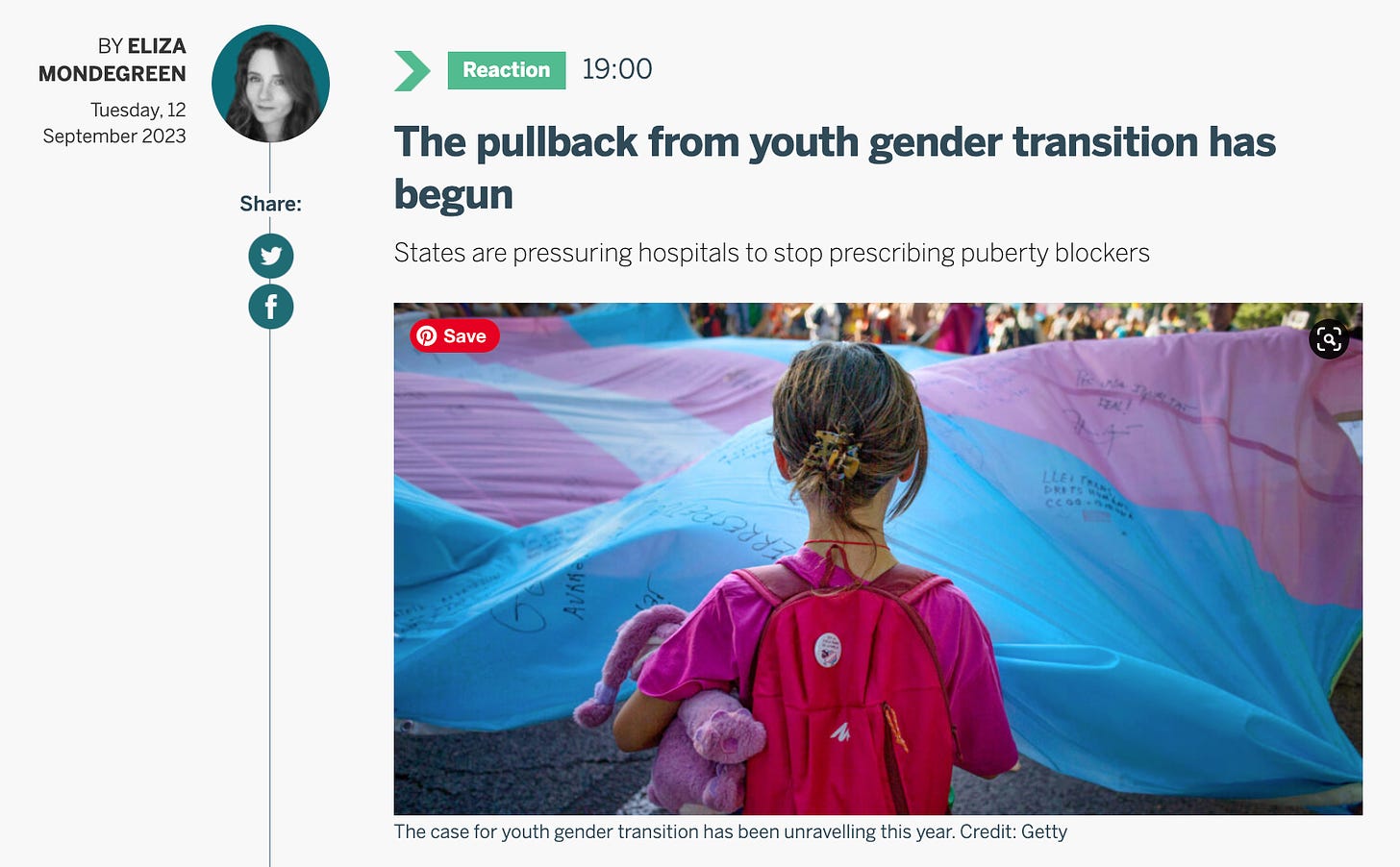First comes the pushback, then the pullback.
Yesterday, the Washington University Transgender Center at St. Louis Children’s Hospital announced that doctors there will no longer prescribe puberty blockers or cross-sex hormones to children and adolescents. This decision follows months of controversy and comes in the wake of a new law that just went into effect in Missouri, which limits hormonal and surgical interventions for gender transition to patients over the age of 18.
…
Under a “grandfather clause” in the new law, the Transgender Center could have continued to prescribe puberty blockers and cross-sex hormones to current patients. However, it decided to back away from these interventions altogether.
[…]
The Center first came under intense scrutiny earlier this year, when former case manager Jamie Reed blew the whistle on what she had come to see as dangerous practices within the clinic.
[…]
Reed catalogued “red flag” cases to keep track of “the kind of patients that kept my colleague and me up at night” and documented cases of youth with serious mental health struggles rushed onto life-altering drugs and even undergoing surgeries they soon regretted. The Transgender Center rejected Reed’s assessment and conducted their own internal investigation — an investigation in which they never bothered to speak to Reed — before declaring her allegations “unsubstantiated”.
But the case for youth gender transition has been unravelling this year, under pressure from state officials and legislators and increased scrutiny from the media. At the end of August, St. Louis Circuit Court Judge Steven Ohmer allowed Missouri’s ban on hormonal and surgical interventions for youth to go into effect, writing that the evidence for youth transition “raises more questions than answers”.
Hence the “unsustainable liability” Washington University cited in its decision to pull back from this area of healthcare. That’s because Missouri’s new law also extended the period of time former patients have to sue for damages to 15 years. Perhaps, when the Washington University investigated themselves, they found more merit to Reed’s allegations than they were willing to acknowledge publicly. They fear being made to pay for it.
Discussion about this post
No posts





I'd be more pleased if this "pullback" occurred in a blue state instead of a red state which had just passed a new law. Still, any pullback is good.
If the regret rate for this necessary, life-saving care is low enough to be minuscule, then why would a longer statute of limitations matter? It should be a cakewalk for the most effective treatment in medicine; 15 years is nothing.